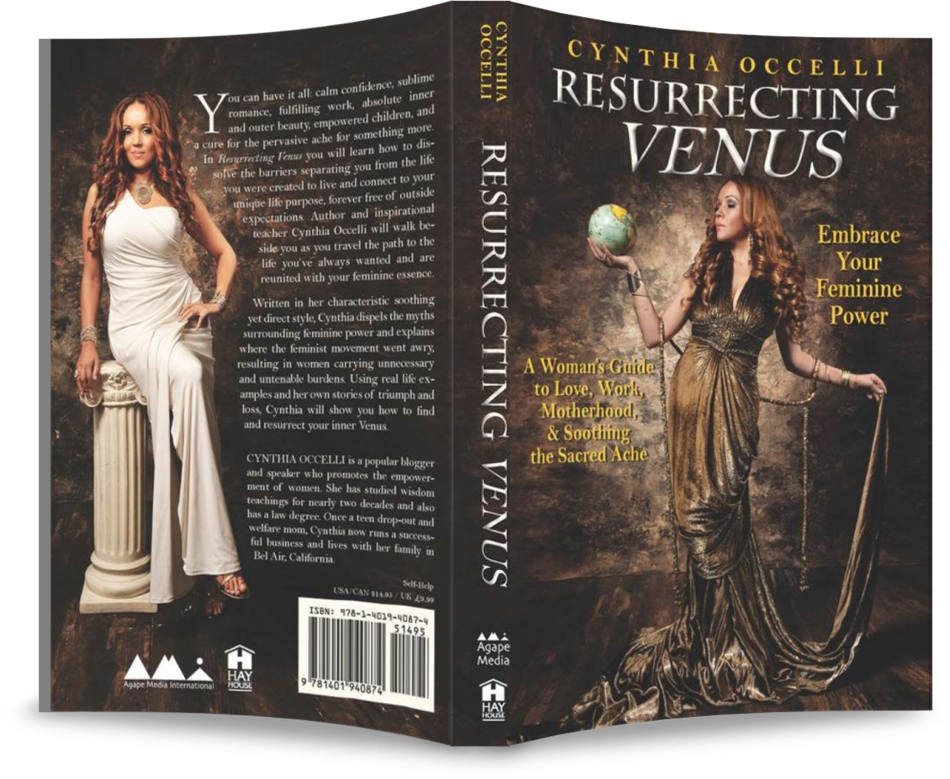This week, I’ve received a plethora of questions about forgiveness.
People have asked:
What is forgiveness?
Why should I forgive?
Doesn’t it let the other person off?
What’s in it for me?
How do I forgive?
and the biggie:
How can I forgive myself?
Forgiveness is a vital part of living your best life. Without it you could squander your whole life away in agony or resentment. No one should live this way.
I wrote about forgiveness in Resurrecting Venus and I am such a believer in its life-transforming power that I am sharing the whole chapter here today. If you’re ever going to read anything from me read this chapter. PLEASE share it far and wide with everyone you know. This is a UNIVERSAL experience and we all deserve to be free.
41. Forgiveness Is Freedom
Note: This writing on forgiveness is not intended for people who are in the throes of a crisis. Neither is it intended to rationalize the continued tolerance of intolerable situations. If you are currently suffering from emotional upheaval, take the well-deserved and brave step of seeking professional/spiritual/religious help. Forgiveness intersects with the path of healing, but until you’ve begun to heal it can be too much, too soon. In situations like these, try to hold a place of possibility and desire for the ability to forgive in the future.
Forgiveness is the most vital and most misunderstood step in creating the life we dream of living. Due to widespread misconceptions about what forgiveness is, and what it is not, the subject can trigger great resistance in even the most tenderhearted people. However, once understood, forgiveness will free your heart, soothe your spirit, and change the trajectory of your entire life.
As we go through life we cannot help but feel negative emotions from some interactions. Whether the upset is directed at a rude store clerk or someone who’s caused us deep anguish, we often hold on to the memory and the resulting feelings and emotions. Most people are unaware of the damaging impact on their lives. Holding on to resentment, anger, jealousy, wounds of rejection, and other negative emotions can influence and shape every new interaction. For example, if you’ve had an unfaithful partner in the past—and you’re holding onto that pain when you meet a new love—the very mistrust and hurt you want to avoid will color your behavior and bring suspicion into your new relationship. Similarly, if you’ve had a falling out with a family member and you are determined to have a better relationship, but you’re still sore about the past, you will unconsciously infuse your present experience with poison from the past. Another example: Perhaps you’re determined to start anew and become the greatest expression of you possible, but you’re defensive. You’ve decided that you are not going to let anyone take advantage of you this time. Holding this thought makes you a magnet for people intent on taking advantage of others, including you.
Whatever you have not forgiven will continue to show up in your life. All of the negative emotions you carry forward act as a smoky haze clouding your perceptions, feelings, creativity, and motivations. When more negative experiences happen, and they will, the weight of the negativity grows. Lugging it all around with you is debilitating and harms every aspect of your life. In extreme situations, bitterness and cynicism become the dominant emotional states. Isolation and loneliness follow, because no one wants to keep company with a miserable person. Non-forgiveness turns you into a victim, because when you hold someone or something else responsible for your emotional state, you give away control of your feelings. The way you feel about yourself, others, and life shapes every action you take.
It’s important to know what healthy forgiveness means. Forgiveness is the release of persistent negative thoughts and feelings that you harbor about yourself, someone else, or past events. It’s the rejection of continued bad behavior. You are responsible for your personal care and safety, both emotional and physical. When someone harms you, they have demonstrated who they are, so believe them. Thinking they are different than their poor behavior is your poor judgment. Regardless of how many times the bad thing actually occurs, the first time it’s their fault. If it happens again, and you could have left or avoided the situation, you share in the responsibility. Granted, there are exceptions (for example, stalkers and random or other unavoidable encounters), and sometimes people do change, but if the promised ”change” is spurred by being caught cheating, lying, or committing some other harm, beware. The chances are high the behavior or action will be repeated.
Sometimes, people are unwilling to forgive because they believe that the other person doesn’t deserve their forgiveness. This thinking is flawed. No one suffers from your non-forgiveness more than you. You may think you shackle another in chains of non-forgiveness, but you bind only yourself. It’s not about the offending person. It’s all, and only, about you. Forgiveness benefits the forgiver.
The realization that unwillingness to forgive only compounds pain or upset is enough to motivate most people to let go. The next question is, “How do I forgive?” Here’s what works for me:
I begin with the understanding that by holding onto non-forgiveness, I am harming myself, and by letting go of heavy negative thoughts and grudges, I free up space for new experiences of love, inspiration, success, connectedness, health, and power. I remind myself that forgiveness unties the chains that hold me hostage and prevent me from moving on. I acknowledge that I cannot take the actions of others personally. I know that I am not the real cause of their behavior, and that anyone who triggered their fear or upset the way I did would have received the same treatment. I remind myself that blame is the victim’s trademark, and I refuse to subsist in victimhood. Beyond empowering myself, I know that forgiveness improves my health, relationships, and moment-to-moment well-being. I ask for help. I ask the power responsible for making my heart beat to take the burden from me. I ‘turn it over” to Spirit and give thanks that I am free. I reflect on the truth I’ve chosen to live my life by: Love is the most powerful force in existence and I am one with it. I cannot hold onto non-forgiveness and uphold my commitment to love myself. If the feelings are intense, I might write everything I have to say, unedited, unrestrained, and unfiltered, and when I can’t come up with anything else, I (safely) burn the writings. Sometimes, I light a candle and send every unforgiving thought away in its flame. There may be ways that work better for you. I encourage you to seek them. How you forgive is not important, only that you do it. Only your freedom matters.
Often the person who needs forgiveness the most is you. In every situation, you’ve done the best you could with what you knew. Replace regret with gratitude for the lesson learned. Resolve to apply the wisdom you’ve gained and forgive yourself for all the ways you’ve disappointed yourself or others. You cannot create something positive using the negativity of yesterday. Forgive yourself and let go. Do this first and frequently. When the baggage and barriers of non-forgiveness are lifted, new and wonderful people and experiences will take their place. You deserve this.
Please leave a comment and share your thoughts about forgiveness and PLEASE forward this to ANYONE open to receiving it. Thank you.–Cynthia















